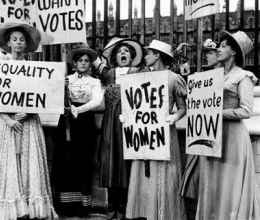On Monday, July 14, the Equal Employment Opportunity Commission (EEOC) issued new federal guidance to protect pregnant workers from job discrimination. These revisions are the first the EEOC has made in the last 30 years. The new guidelines make it clear that any form of workplace discrimination or harassment against pregnant workers is a form of sex discrimination and is, therefore, illegal. For the first time, the guidelines clarify an employer's obligations under the Pregnancy Discrimination Act of 1978 and the Americans with Disabilities Act.
This welcome change is coming on the heels of some disturbing statistics. The latest EEOC data shows a 46 percent increase in pregnancy-related complaints reported to the EEOC between 1997 and 2011. According to EEOC Chairwoman Jacqueline A. Berrien, the updates are necessary: “Despite much progress, we continue to see a significant number of charges alleging pregnancy discrimination, and our investigations have revealed the persistence of overt pregnancy discrimination, as well as the emergence of more subtle discriminatory practices.” Among other things, the guidelines will prohibit employers from forcing pregnant workers to take leave and acknowledge that employers “may have to provide light duty for pregnant workers.” The new guidelines also define post-childbirth lactation as a pregnancy-related medical condition. And, adding to the good news, the guidelines stipulate that, when it comes to parental leave, “similarly situated” men and women must be treated on equal terms.
The ACLU applauds these updates. In a press release, Laura Murphy, director of the ACLU’s Washington Legislative Office stated that:
No woman should be forced to choose between a healthy pregnancy and the paycheck she needs to provide for her family. The ACLU has long advocated for the rights of pregnant and breastfeeding workers, and we are pleased that this guidance moves us towards greater equality and fairness in the workplace.
These updates and revisions represent advancement. Pregnancy should never be used as a justification for discrimination. Pregnant workers should never be excluded from jobs they're qualified for and able to perform. Pregnant workers should never be treated less favorably than workers who are not pregnant.




